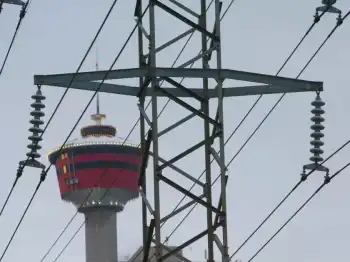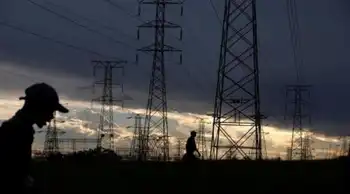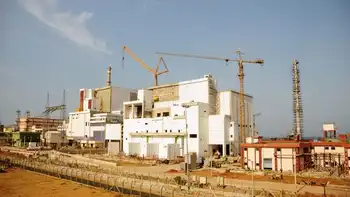Indian companies scouting for overseas coal acquisitions
By Industrial Info Resources
Substation Relay Protection Training
Our customized live online or in‑person group training can be delivered to your staff at your location.

- Live Online
- 12 hours Instructor-led
- Group Training Available
Captive coal mines will also insulate industry majors from fluctuations in coal prices.
At the forefront of the coal rush is the Indian power sector, which currently accounts for 75% to 80% of domestic coal demand. The sector is expected to require about 540 million tons of coal per year by 2013. Demand is likely to surpass domestic supply by at least 60 million tons per year by that time, and the gap is expected to widen to 100 million tons by 2015.
Coal Ventures International Limited (CVIL), promoted by five state-owned companies, has invited expressions of interest from global investment banks for assistance in securing overseas thermal and metallurgical coal mines. CVIL is eyeing strategic investment opportunities in metallurgical, pulverized coal injection and steam coal producing companies in Australia, Canada and the U.S.
It will invest in private equity deals with owners of coal assets in Indonesia, Mozambique, South Africa and Zimbabwe. It will also obtain mining licenses to develop coal mines worldwide. The company has been vested with autonomous powers by the government to clear investment proposals of up to $375 million at the board level.
CVIL is promoted by Coal India Limited, National Mineral Development Corporation Limited, National Thermal Power Corporation Limited, Rashtriya Ispat Nigam Limited and Steel Authority of India Limited.
In March, Reliance Power Limited announced the acquisition of three coal mines in Sumatra, Indonesia, with estimated reserves of 2 billion tons. Gujarat NRE Coke Limited has been operating the NRE Wongawilli Colliery near Wollongong, Australia, since last year when it acquired the mine for $50 million. The company now plans to invest an additional $65 million over the next two years to expand the mines to full production capacity of 2.5 million tons per year by 2011-12.
ETA Star India Projects Private Limited, the Indian subsidiary of the ETA Star Group, has joined hands with PTC India Limited and Infrastructure Leasing and Financial Services to acquire overseas coal assets. PTC has agreed to supply coal to power project developers for an aggregate generation capacity of 5,000 megawatts (MW).
IL&FS wants to ensure coal supplies for its 1,600-MW coal-fired power project in Krishnapatnam, Andhra Pradesh, in which it owns a 50% stake. Last year, the ETA Star Group obtained a coal block in Mozambique. In January 2008, it acquired Bara Energy Makmur (Indonesia), which owns two coal blocks.
Tata Power Company Limited has acquired a 30% stake in PT Kaltim Prima Coal and PT Arutmin, thermal coal producers owned by PT Bumi Resources Tbk for $1.1 billion to feed its upcoming power projects. The imported coal requirement for the 7,000 MW of power projects is estimated to be 21 million tons.
In June 2007, infrastructure major Madhucon Projects Limited acquired an Indonesian coalmine with reserves of 50 million tons. It is reportedly scouting for more acquisitions to secure supplies for its proposed 1,000-MW power plant in the special economic zone on the east coast of India. In April 2008, GMR Group announced its decision to pick up a 5% equity stake in Homeland Mining and Energy SA for $15 million to fuel its power projects in India.
Cement and steel majors are also trying to keep pace with power majors in the frenzy for coal acquisitions overseas. Coal accounts for 27% of the manufacturing costs of cement. Binani Cement Limited is looking to acquire coal mines in Indonesia with reserves of 30 million tons for $60 million. The company incurs annual costs of $100 million in coal imports. The acquired mines will supply lignite coal, which is required for Binani's proposed cement project in Gujarat. UltraTech Cement Limited wants to acquire coal mines in South Africa and Indonesia.
In January, Surana Industries announced that it would acquire a 49% stake in PT Agate Resources for $400 million, which will lease out or acquire mining rights in Indonesia. This will enable Surana to meet power requirements for its upcoming integrated steel complex in Raichur, Karnataka. Surana's steel complex will procure 35 MW of power from a thermal power station and 10 MW of power from waste heat recovery. In May 2008, Tata Steel Limited announced plans to undertake a large-scale expansion of the Carborough Downs mine in Queensland, Australia, in which the company owns a 5% equity stake. The mine is expected to generate 4.9 million tons per year of run-of-mine coal, which will yield 3.7 million tons of coal annually, starting in mid-2009.
Late last year, the company partnered with Riversdale Mining to acquire a 35% stake in a coking-coal-mining project in Mozambique for $88.3 million. It received rights to 40% of the project's output. The mine is estimated to have coal reserves of 1.23 billion tons.











